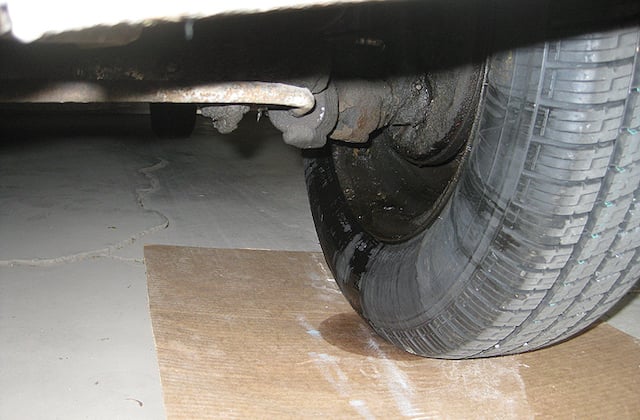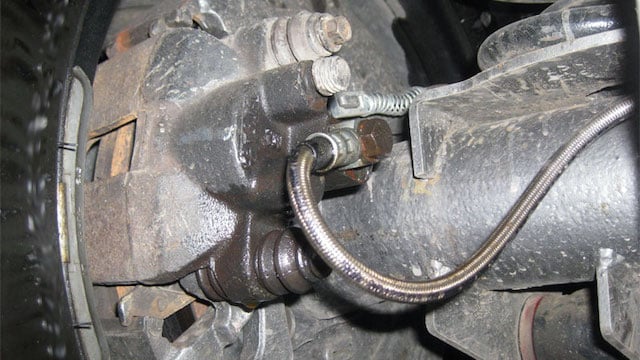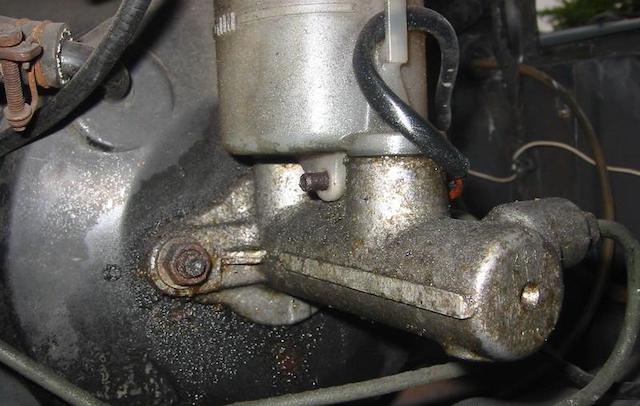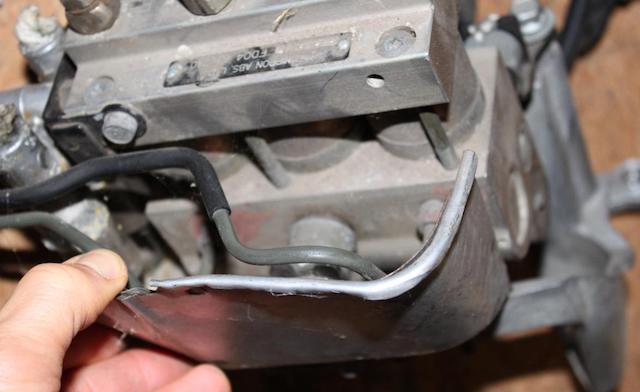Symptoms of a brake fluid leak can be gradual or sudden. The brake pedal may feel mushy or drop to the floor, and you may see a brake warning light. If you suspect there is a leak in the brake system, it’s important to diagnose it promptly. Leaks can pose an immediate safety risk with a loss of hydraulic pressure and entry of air and contaminants into the system.
Possible Leak Locations

There are many points where brake fluid can leak from the brake system, including:
- Brake lines or hoses
- Caliper pistons
- Wheel cylinders
- Master cylinder
- Bleeder screws
- ABS Module
We’ll walk through how each of these components can leak:
Brake Lines Or Hoses

Brake lines can become pitted or corroded over time. They may also get damaged from road debris or activities like off-roading. Rubber brake hoses can crack and deteriorate over time. Any of these conditions can cause a gradual or sudden loss of brake fluid.
Caliper Pistons
The piston in a brake caliper includes a flexible rubber seal that allows the piston to move freely under pressure. The seal may deteriorate over time, or become overextended when the brake pads are allowed to wear out completely.
Wheel Cylinders
The wheel cylinder inside a brake drum includes rubber seals that allow the pistons to move freely under pressure. The seals can deteriorate from age or wear over time, causing fluid to leak out.
Master Cylinder

A brake master cylinder consists of a valve to apply system pressure through the connected brake lines. It is possible for a master cylinder to develop leaks in several different places. This includes the brake fluid reservoir, the brake line fittings, or the seals. Internal seal damage or deterioration can cause brake failure symptoms with no visible external leaks. A leaking seal between the master cylinder and the brake booster will be visible externally.
Bleeder Screws
Each brake caliper and wheel cylinder includes a bleeder screw to bleed air and flush fluid from the brake system. If a bleeder screw is improperly tightened or damaged, it may cause a loss of brake fluid and allow contaminants into the brake system.
Anti-Lock Brake System (ABS) Module

The ABS module has multiple brake lines and fittings connected that could leak with age or corrosion. There are many seals in an ABS module that could also deteriorate and leak over time.
Finding The Source
Depending on the location and severity of a brake fluid leak, it may not be easy to diagnose. An obvious brake fluid leak will point you in the right direction. There may either be fluid leaking on the ground or brake fluid stains around the leaking component. Often times the leak can be identified by the dirt collected by the leaking fluid. Even a small leak is enough to cause a soft pedal.
Pinpointing a brake fluid leak may require a thorough inspection of the brake system, including all the components mentioned above. Depending on your own knowledge and expertise, you may want to have a qualified mechanic diagnose and/or repair the problem. If you’re comfortable with brake system repairs, we have all the parts you need, at the best prices. Find the right parts for your vehicle here.
Not sure what to do with your old brake parts? Check out this blog post on how to properly recycle or dispose of your old brake parts and fluid.



